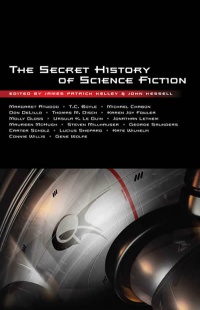First a definition, courtesy of wikipedia:
A narrative hook (or hook) is a literary technique in the opening of a story that “hooks” the reader’s attention so that he or she will keep reading on. The “opening” may consist of several paragraphs for a short story, or several pages for a novel, but ideally is the opening sentence.
I’ve been thinking for quite some time of sharing some of my favorite narrative hooks from science fiction novels; but through a combination of laziness, forgetfulness, and being busy with other things (mostly lots of reading), the idea has been sitting on a back burner, undeveloped. However, I recently got an inspirational kick in the posterior when I read an io9 article about Great Opening Sentences From Science Fiction.” Some of the examples in that article are good ones, some not so good, but then that’s just my opinion. A great hook for one person may be totally boring to another. But for what it’s worth, here are a few of my favorite hooks from science fiction (and fantasy). And by “favorite” I don’t mean judged by some abstract literary measurement; I simply mean that they worked for me. They drew me in and made me feel compelled to keep reading, and that always helps make the reading experience more pleasurable. I won’t restrict myself to single sentences, as the io9 article did, because a good hook usually takes at least several sentences to develop. So……
I mentioned this one a while back in my review of Heinlein’s Friday:
As I left the Kenya Beanstalk capsule he was right on my heels. He followed me through the door leading to Customs, Health, and Immigration. As the door contracted behind him I killed him.
That works beautifully to capture the reader’s curiosity. What is a Beanstalk and why is it in Kenya? Why is this one person following the other person, and what could be so important about this that it should involve death? Was the death justified (morally, legally) or not? It sure kept me reading.
Here’s the beginning of one of my all-time favorite novels, A Time of Changes by Robert Silverberg:
I am Kinnall Darival and I mean to tell you all about myself.
That statement is so strange to me that it screams in my eyes. I look at it on the page, and I recognize the hand as my own — narrow upright red letters on the coarse gray sheet — and I see my name, and I hear in my mind the echoes of the brain-impulse that hatched those words. I am Kinnall Darival and I mean to tell you all about myself. Incredible.
When I first read those words I had no idea it was a science fiction novel, nor any idea who Silverberg was. It was just some book I found in a box from a yard sale. But once I opened it and read those first words, I was hooked. I just had to know why this Darival character was shocked at himself for what he wrote; I had to know why it was “incredible” to him.
Another very effective hook comes from Roger Zelazny’s Nice Princes in Amber:
It was starting to end, after what seemed most of eternity to me.
I attempted to wriggle my toes, succeeded. I was sprawled there in a hospital bed and my legs were done up in plaster casts, but they were still mine.
I squeezed my eyes shut, and opened them, three times.
The room grew steady.
Where the hell was I?
That first sentence is a pretty good hook in its own right. But the more you read on, the better it gets. The first several pages constitute a fantastic hook for the novel, but I’m not going to quote that much.
All of the above examples depend on creating an air of mystery. Another way to go is to set up a grand flamboyant atmosphere, as Alfred Bester does in The Stars My Destination:
This was a Golden Age, a time of high adventure, rich living, and hard dying…. but nobody thought so. This was a future of fortune and theft, pillage and rapine, culture and vice…. but nobody admitted it. This was an age of extremes, a fascinating century of freaks…. but nobody loved it.
It can’t be an accident that he uses the word “fascinating” in there, because the whole effect of those lines is to fascinate me and make me want to learn more about this future time.
Then there’s the deep and/or philosophical and/or metaphysical sort of opening, as for example in Vernor Vinge’s A Fire Upon the Deep:
How to explain? How to describe? Even the omniscient viewpoint quails.
Wow! If even the omniscient viewpoint can’t handle what’s about to be described, then I’m pretty damn sure it’s gonna blow my mind.
So there you have some examples of the kinds of opening lines that hook me. What hooks you?















